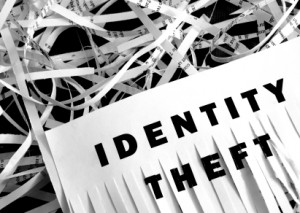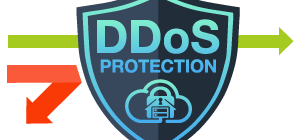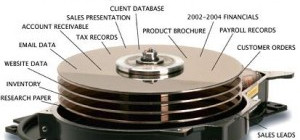 In this digital world when almost everything is found on the internet, the concept of theft is not limited to the stealing of personal belongings only. In the era of modern technologies and social media, the theft of personal details is becoming a matter that calls for serious attention. When someone poses a wrong identity, pretending to be some other person, they are performing identity theft. It is never a simple crime, especially now when the tricks to exploit someone’s personal details are at the finger tips. According to the survey of the U.S. Bureau of Justice conducted in 2012:
In this digital world when almost everything is found on the internet, the concept of theft is not limited to the stealing of personal belongings only. In the era of modern technologies and social media, the theft of personal details is becoming a matter that calls for serious attention. When someone poses a wrong identity, pretending to be some other person, they are performing identity theft. It is never a simple crime, especially now when the tricks to exploit someone’s personal details are at the finger tips. According to the survey of the U.S. Bureau of Justice conducted in 2012:
- One out of 14 people, who are 16 years of age or older, is either a target or a victim of identity theft.
- Approximately 16.6 million people became a victim of identity theft, which resulted in a loss of $24.7 billion.
There are different types of identity thefts:
- Criminal Identity Theft: When someone poses as someone else, she is said to be involved in criminal identity theft.
- Financial Identity Theft: This happens when someone uses another person's identity to wrongfully obtain goods, credits or lone.
- Identity Cloning: When someone assumes the role of some other person in daily life, they are said to be doing identity cloning.
- Medical Identity Theft: When someone uses the identity of others to obtain medical care and drugs, it is known as a medical identity theft. It is becoming a serious concern with every passing day.
These forms of identity thefts are becoming a serious concern with every passing day.
There are many ways to steal the identity and a few criminals do it in such finesse that no one realizes the incident until it is too late.
- Dumpster diving is the oldest form of identity theft. If someone rummages through your trash, it becomes easier to obtain a handful of personal information. The bills that are not tore down, the numbers you may have written in some paper and later dumped it into the trashcan, become a source of information to them.
- If your wallet has been stolen then be sure that your personal details like social security number or cards you use will be leaked.
- Shoulder shuffling is another way that seems convenient for the thieves. Standing just beside you from where he/she can peep into your phone screen or at the earshot distance from where they can collect every single detail, your phone conversation might be giving away a few important details.
- Data breach is the most modern way of identity theft. Breach is a gap, often left by carelessness that allows your confidential information, such as social security number, bank account number or credit cards number to be leaked.
How to Avoid Such a Theft
If you don’t want to be an easy target to these thieves, then you better take some steps as precautions:
- Avoid the ‘need-to-know' approach. Is someone calling you claiming the call is from the bank? And that they need to know a few personal information, starting from the names of your parents or spouse to the numbers of your account? Don’t give away all those information in good faith, as it can result in identity theft.
- It is a common way to obtain personal data by calling and offering a prize, some new offer or a benefit that you can have by disclosing your details. Don’t fall a prey to those traps.
- If you receive any such calls, then ask for an application form straight away. If they don’t want to provide it, then cut the call saying that you are not at all interested.
- If you receive a form, then make sure that the authority who is going to receive it is an authentic one.
- Check your financial information, the statement of the bank regularly, so that if any defect is there you can take a note of it right away. Remember that if you keep a close tab on everything, then it will become unlikely for you to fall prey to such a theft.
- If you find any unlawful transaction going on in your account, then immediately inform the financial organization immediately. This will ensure that all transactions to and from your account are halted.
- If you are traveling, then tell the local post office to hold back the mails for the time when you are away.
- If you don’t have the facility to receive the financial information of deposit and withdrawal from the bank, then install it. It will help you to keep a track of your account.
- Install a strong password to protect your accounts.
- After such precautions, if it happens then don’t hesitate to seek help from a criminal lawyer.
In a nutshell, stay alert. Don’t leave your wallet, whether full of cash or full of personal details, anywhere. And don’t leave any gap while providing any information to some online service. You can’t do much when you are already a victim, but you can protect yourself beforehand by simply being alert.
Shared by David M Garvin.







